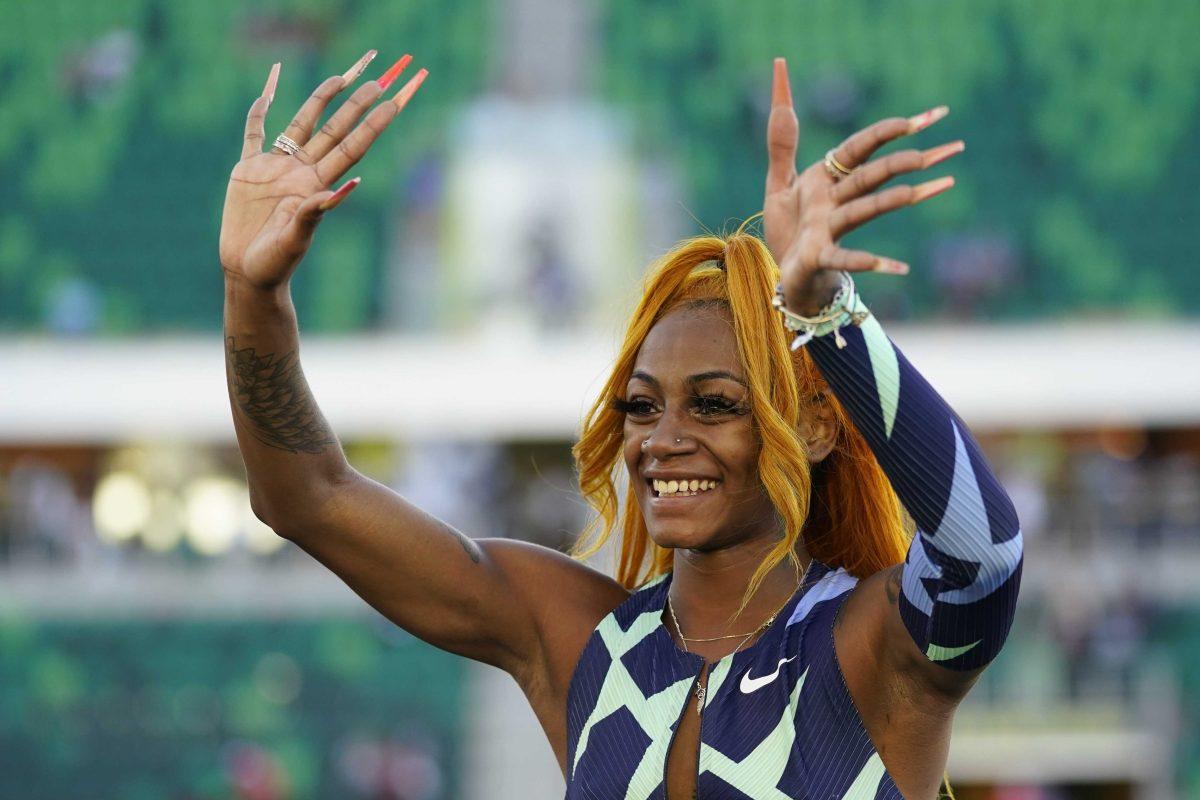Despite the rapid demise of the cannabis stigma among the American people in the past decade, an Olympian has been barred from competition because of her use of a substance that has been legalized in 19 U.S. states.
Twenty-one-year-old ex-LSU sprinter Sha’Carri Richardson qualified for the 100-meter dash with a 10.87 second score on June 19. She was set to compete in the event during the delayed Tokyo 2020 Summer Olympics next month.
This performance was nullified after she tested positive for THC on a mandatory drug test. In response, Richardson accepted a 30-day suspension that concludes July 27. The Tokyo Olympics start July 23.
Richardson was on track to be one of the U.S. Team’s brightest stars.
Now a lifetime of work is ruined by the presence of a substance that can be legally enjoyed in more than a third of the nation she was set to represent.
Unlike practices like blood doping and substances like steroids, THC has not been conclusively linked to performance enhancement.
“It’s not a steroid. It’s not a growth hormone. It’s nothing to make you run faster, jump faster, throw faster — furthest thing from that,” Joseph Hanna, an attorney that has represented several professional athletes, said. “It has more of an opportunity to slow you down than to speed you up.”
Cannabis and other THC consumption methods are no more beneficial to an athlete than a night at the bar or a late night run to McDonalds. Steven Hawkins, the interim president of the United States Cannabis Council, compared smoking cannabis to smoking a cigarette or eating a greasy hamburger.
“These things have nothing to do with an athlete’s performance,” he said.
Richardson’s THC consumption was in the legal state of Oregon. According to an interview she gave Friday morning with “The Today Show,” she turned to cannabis as a way to cope with the death of her biological mother.
“Don’t judge me because I am human,” Richardson said.
Unlike the inconclusive science behind THC’s connection to performance enhancement, the scientific and public community has largely accepted the role of the drug in stress and anxiety relief. A 2019 study found that stress and anxiety were reduced by around 58% after THC consumption.
Consumption of a substance that you can legally buy for recreational and medical use should not destroy years of work, years of training to reach peak physical fitness. Richardson and her story are almost universally sympathized with.
“[Many] don’t even realize how galactic [she] was going to become in Tokyo. Like global-icon-shooting-star galactic,” sports editor at The Nation Dave Zirin tweeted. “What they have taken from her over some weed is incalculable.”
News of Richardson’s suspension comes the same week that Soul Cap— a swimming cap designed to allow swimmers with natural black hair to swim without barriers — was banned from use in Tokyo.
Both Richardson’s suspension and the Soul Cap ban are seen nationwide and internationally as continued existence of white supremacy and racism in modern society. Cannabis’ current status as a schedule one substance is attributed to racist attitudes relating to Hispanic and black communities in the early 20th century.
“The criminalization and banning of cannabis is an instrument of racist and colonial policy,” Rep. Alexandria Ocasio-Cortez said.
“The notion that weed is a problematic “drug” is rooted in racism. It’s insane that Team USA would disqualify one of this country’s most talented athletes over thinking that’s rooted in hatred. It’s something they should be ashamed of,” responded Seth Rogen, actor and owner of Houseplant Cannabis. “Also if weed made you fast, I’d be FloJo.”
Responding to the suspension of one of his nation’s finest athletic champions, President Joe Biden said on Saturday that “the rules are the rules.”
“Whether they should remain the rules is a different issue,” Biden said.
It’s been nearly a decade since the first state legalized cannabis. Given the universal response to Richardson’s suspension, maybe it is time to reconsider some of the rules behind anti-doping as we continue into the 21st century—and this nation’s perception of cannabis in general.
In a better world, Richardson wouldn’t be giving interviews trying to justify her actions and talk about how she can’t compete in the event she broke records for at LSU; she would be basking in Olympic glory.
Domenic Purdy is a 20-year-old journalism junior from Prairieville.
Opinion: Cannabis shouldn’t endanger an Olympian’s shot at gold
July 4, 2021
Sha’Carri Richardson waves after winning the women’s 100-meter run at the U.S. Olympic Track and Field Trials Saturday, June 19, 2021, in Eugene, Ore. (AP Photo/Ashley Landis)








